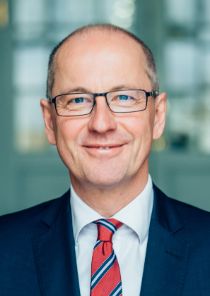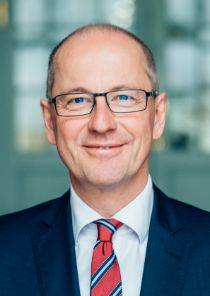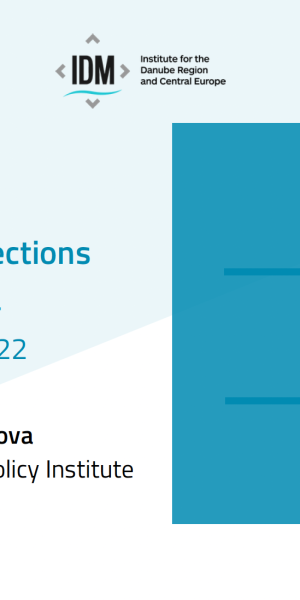Meet our Chairman!

Friedrich Faulhammer will chair the Institute for the Danube Region and Central Europe (IDM) for the next three years, which was confirmed in the ordinary session of the General Assembly on 4 October 2022 at the Landhaus St. Pölten.
Friedrich Faulhammer has been rector of the University for Continuing Education Krems (Danube University Krems) since 2013. He studied law in Vienna and then worked from 1985 to 1990 at the Institute for Legal History at the University of Vienna and in the legal department of the university management. He then moved to the Federal Ministry of Science and Research in 1990, where he played a key role in shaping Austrian and European university policy, including the 2002 University Act, and especially after he became head of the university section in the ministry in 2005 and later its secretary general.
At the most recent General Assembly, Faulhammer was re-elected chairman of the Danube Rectors’ Conference for the two-year term of office starting in 2023, having already held this position for the 2017-2018 period. In 2018 he was elected to the board of directors of the Ludwig Boltzmann Society (LBG), and since 2021 he has been a member of the university council of Vienna University of Education. In 2019 he was appointed to the board of the Institute for the Danube Region and Central Europe (IDM), where he served as deputy chairman from 2020 to September 2022, before being elected chairman.
Three questions for the new chairman:
- What is it like to succeed Erhard Busek as chairman of the IDM? In which direction should the IDM develop with you as chairman? How can/will you promote this direction?
In his many years as chairman, Erhard Busek has had a strong influence on the IDM. He was filled with the idea of a united Europe in which the countries of the Danube Region play an important role and in which the potential of Central and South-Eastern Europe is used for the development of the entire continent. Aware of this work, I strive to continue to pursue this vision of the IDM, to promote the democratic, peaceful and sustainable development of societies in Central and South-Eastern Europe through dialogue. The task assigned to the IDM and which I would like to push forward is to strengthen its cross-border expertise through scientific research and to promote mutual understanding by concentrating on cooperation in the region. The war in Ukraine presents us with a special challenge and requires us to strengthen connections with this country, which is also a Danube riparian state, and to keep channels of exchange open. Another focus is certainly the Western Balkans’ rapprochement with the European Union, which has only recently gained new impetus. Here it is important to proactively bring the IDM’s expertise and connections in this part of the Danube Region into this approach.
- You have worked with the IDM for many years and have also been vice president of the board, so you know the IDM inside and out. In your opinion, what are the strengths of the IDM? Where do you see opportunities for improvement?
The IDM has a great team and an excellent network in the countries of the Danube Region at different levels, be it science, civil society, business, culture or politics. Therein lies the strength of the IDM: in linking these different perspectives and points of view and as a hub in the exchange between Europe’s centre, Brussels, and the Danube Region. It is important to keep the vision of the IDM in mind and to make relevant contributions to the development discourse of the Danube Region through profound, scientifically developed expertise. This will require focusing and concentrating on those issues that are important for the immediate development of the countries in Central and South-Eastern Europe, and that help to reduce existing disparities and counteract growing imbalances. These include, among other things, the topics of science, education and research.
- Professionally, you combine the role of rector of the University for Continuing Education Krems with that of chairman of the IDM. But what about Friedrich Faulhammer as a private individual? What do you like to do in your free time, what are your hobbies?
I dedicate the little free time I have to my family, my wife and my now grown-up sons. In addition, I like to do voluntary work, for example my work with the volunteer fire brigade in the municipality where I live. And apart from my direct professional topics, I am particularly interested in questions of institutional governance, which also accompany and occupy me in my free time.



